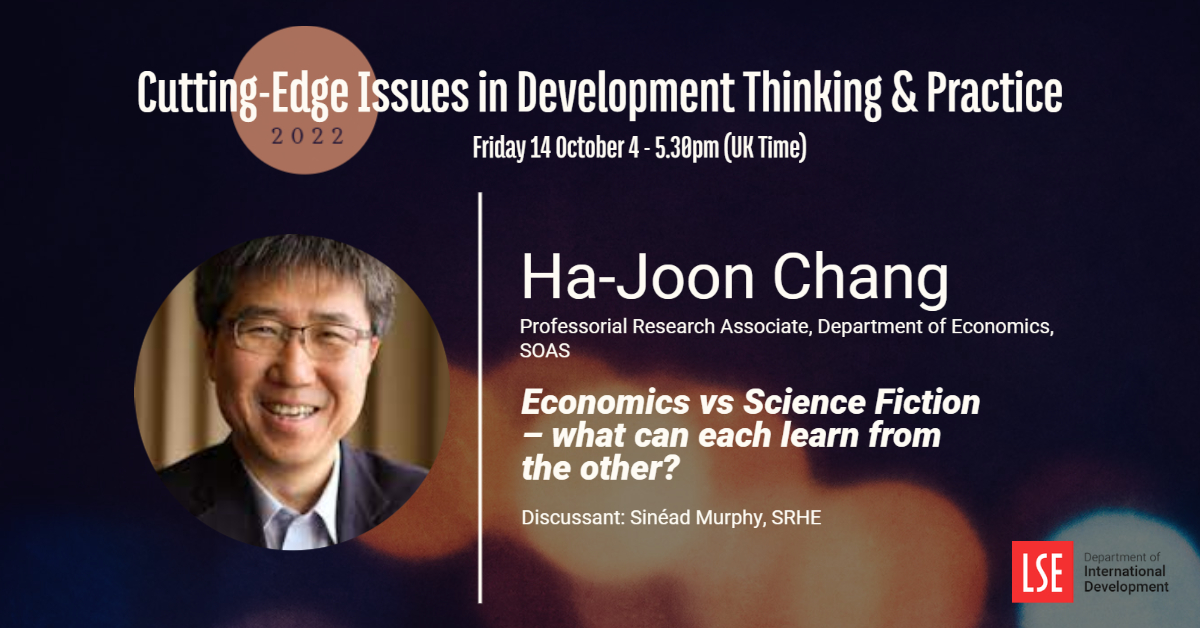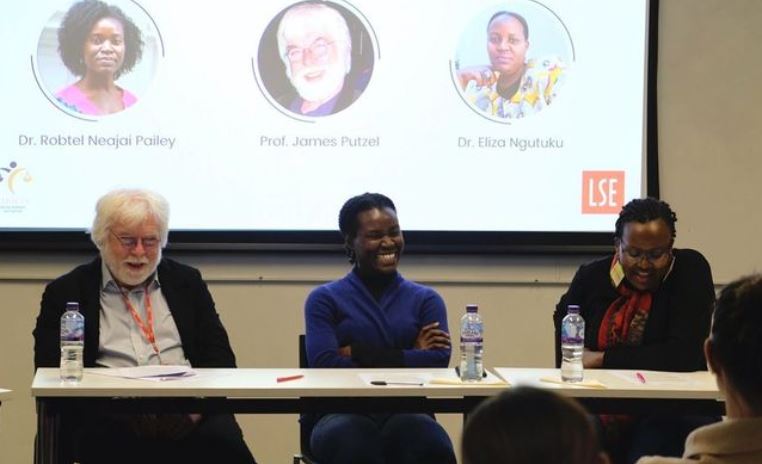MSc Anthropology and Development Management student, Cecilia Antonini, reflects on a Cutting Edge in Development guest lecture from Owen Barder, Chief Executive of Precision Agriculture for Development, about Complex Adaptive Systems in international development.
The CEO of Precision Agriculture for Development, Owen Barder, came to the LSE to talk about System Thinking. Throughout the lecture, his “Citizens of Europe” t-shirt was purposely sticking out of his zip-thru, a message which, on Brexit Day, was well appreciated by the multi-cultural audience present in the room.
The lecture began with an introduction to The Toaster Project by Thomas Thwaites. Back in 2009, Mr. Thwaites decided to build a toaster from scratch. At the time it would have cost him less than £3.99 to purchase a toaster from Argos; the amount which he ultimately ended up spending to build his home-made toaster added up to over £1100. This was due to the several trips around the UK on which Mr. Thwaites had to embark on to personally collect the chemical elements necessary for his project, and the effort to transform such elements into usable materials.

What professor Barder wanted to prove by discussing The Toaster Project is the importance of systems. Whilst the £3.99 Argos’ toaster had an efficient system behind its production, this was missing in the rather expensive and faulty toaster built by Mr. Thwaites.
What has been missing from decades of Development theory and consequential interventions is a system to support change, Professor Barder argues. After taking us through the most memorable growth theories of the past century (Harrod-Domar; Rostow; Financing Gap Model; Solow; Neoclassical Growth Model), he pointed out how these wrongly focus exclusively on one variable, rather than considering the multiplicity of factors that make a system work. According to Professor Barder, the biggest problem facing Development is that systems just aren’t present in the Global South countries. Fret not! He also spoke about how to create such systems.
Professor Barder was inspired by Professor Steve Jones, who as a young engineer persuaded his peers at the Lever Brothers’ Soap Factory to apply the concept of natural selection to a nozzle. In each trial, the engineers would randomly design ten nozzles, pick the best one and repeat the process. After 45 generations of nozzles, the final product was hundreds of times more efficient than the one they began with. And whilst their knowledge as engineers contributed to a good starting point, the process of variation and selection is what led to success.
Thus, as development practitioners, we should plan a variety of interventions and select the one with the best outcome in terms of social benefits. Drawing on its own experience at Precision Agriculture for Development, Professor Barder explained how by sending out different messages at different times of the day, and analysing the different reactions to these messages, he discovered the best combination to better engage farmers to adopt new agricultural solutions. Indeed, quick feedback is crucial in such trial and error mechanisms. But this alone is not enough.
What is really missing from the field of international development is the understanding of Complex Adaptive Systems. These are systems that are in a constant state of disequilibrium, as they are always evolving. All the small, unpredictable changes happening within a part of the system result in consequent changes in others. Such alterations participate in a process of co-evolution which creates a huge variety of properties. Development, according to Professor Barder, is an emergent property of a Complex Adaptive System.
The relationships within the system’s properties are what matters. As an example, Professor Barder discusses the difference between providing people in the Global South with money rather than food aid. Money is a property able to interact with other parts of the economic system, such as firms and taxation, which together can initiate a virtuous circle of development. However, we can agree on the fact that firms or effective institutions are often not present in developing countries.
Professor Barder suggested a number of strategies to accelerate the establishment of the properties necessary for a working system. These included: preventing barriers to entry by encouraging industries rather than firms; spreading knowledge, ideas and information by, for example, providing people with mobile phones; enacting the EU’s pillars of the “Four Freedoms”. Perhaps the most important strategy is to build linkages: to create interaction within different parts of the system to stimulate development.
Borrowing from the physical, environmental and biological sciences, Professor Barder’s discussion of Complex Adaptive Systems gives us a novel approach to development. Ultimately, what I took away from his engaging lecture is to put trust in the power of small changes. And even if some of my fellow students seemed to be slightly reluctant at the optimistic inclination of system thinking, perhaps a pinch of optimism is one of the missing properties needed to kick-start development in the Global South. As he reminded us at the end of the lecture, “you are not building a better world, you are building a system that takes you to a better world”.
Cecilia Antonini is a MSc Anthropology and Development Management student at the LSE with a BSc in Marketing from the University of Kent. Her interests include environmental governance & interventions, international development, and anthropological approaches to development.
The views expressed in this post are those of the author and in no way reflect those of the International Development LSE blog or the London School of Economics and Political Science.






1 Comments